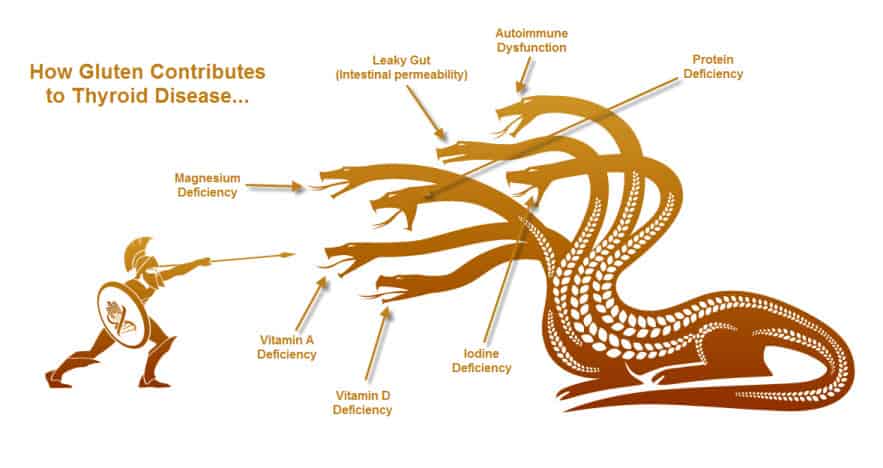Gluten and Breastfeeding The questions about breast feeding come up often in regards to gluten intolerance, sensitivity, and celiac disease. I have had patients tell me that their pediatrician would prefer they not breastfeed because of gluten issues in the baby. I have also had patients be told that their baby is allergic to breast […]
Category Archives: Gluten Free Society Blog
Does Gluten Lead to Less Manly Men? Gluten is known to effect the production of hormones in both men and women. Studies have shown that gluten can disrupt the endocrine system leading to reduced hormone production. Gluten and testosterone deficiency are linked. Another one of the detrimental mechanisms of gluten is nutritional loss via malabsorption […]
Lab tests for gluten sensitivity often come back falsely negative. Many people go gluten free despite the lab results and end up feeling better. The following video explains why this can happen… Traditional diagnostic testing has focused on blood antibody tests and or intestinal biopsies. Unfortunately traditional tests for gluten sensitivity are often incorrect! Why? […]
The Gluten Thyroid Connection Gluten Plays a Role in Autoimmune Thyroid Disease? Fatigue, weight gain, hair loss, bloating, dry skin, and joint pain are all symptoms (especially in autoimmune thyroid disease) that can persist even while on a gluten free diet. One of the biggest reasons why has to do with gluten’s impact on your […]
Another research study investigated the connection between autoimmune liver disease and gluten. This study investigated whether children with combined autoimmune hepatitis and celiac disease had higher remission rates of hepatitis while on a gluten free diet. The conclusion of the study is below… CONCLUSIONS:: Patients with AIH co-existing with CD achieve treatment-free sustained remission in […]
